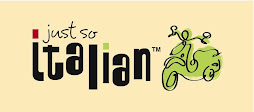
Fegato alla Veneziana sounds more romantic, doesn't it, than liver and onions? But that's what it amounts to, and they serve up a fine plate of it in the cosy dining rooms of Al Nono Risorto, just over the bridge from Campo San Cassiano. We stumbled upon it at first, then it became our 'neighbourhood restaurant' when we stayed a week in winter in an apartment at the edge of the square.
The restaurant comprises a series of dining rooms. The first, straight off the street, has a high ceiling, a bar and terrazzo floor tiles reminiscent of a French brasserie. Other rooms are smaller, and lower. When the restaurant is busy it's all bustle and noise and the staff of bright young things, some of whom seem more interested in how they look than what you have ordered, can be distracted. On one occasion when the restaurant was heaving and breaking the sound barrier I ordered fegato but was brought a steak (and a pretty raw one at that).
But don't let that put you off. This place has atmosphere. Enter into the spirit of it all and you'll enjoy it (as long as you don't have sensitive ears). We also ate pizza and pasta and chicken and seafood and other dishes that were excellent and extremely good value. The restaurant owner sat inside the door and checked every bill as diners came to pay – and rounded each one down. Well he did ours anyway. Nice touch.
We've only eaten here in winter, when the adjoining canopied garden was tired and closed, but I can imagine that it's a lovely space in which to eat in the warmer months. On winter evenings the light from the restaurant casts a warm glow onto the pavement outside, making it almost imperative to stop and read the handwritten menu taped to the window.
If you pass and hesitate, go in. You won't be disappointed.
Al Nono Risorto, Santa Croce 2338, Sottoportego di Siora Bettina, Venice 30121
Tel 041 524 1169
Here's another place without its own website. They obviously attach more importance to food than technology, which is fine by me. You'll find plenty of reviews out there though.





















